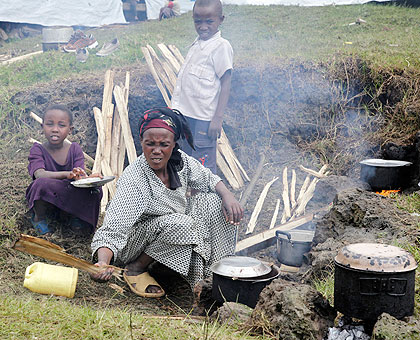Germany has committed a further 1.2 million Euros for emergency supplies for internally displaced persons and refugees from the Democratic Republic of the Congo.


Germany has committed a further 1.2 million Euros for emergency supplies for internally displaced persons and refugees from the Democratic Republic of the Congo.Part of the money will also go to the World Food Programme to buy food supplies for Congolese refugees in Rwanda, according to a statement from the German Foreign Affairs Ministry."The money Germany makes available will be used to supply basic necessities such as blankets, kitchen utensils and emergency accommodation for the displaced and their host families in the Kivu provinces,” said the communiqué.The aid will be implemented by Caritas Germany – International Department, Diakonie Katastrophenhilfe and their partners on the ground. A German NGO, Humedica, will provide emergency medical assistance for the refugees. The measures are being planned and implemented in coordination with the United Nations (OCHA, UNHCR)."We must not allow the various crises in the north of the continent to blind us to the continuing crisis in the Congo, which has persisted for years. Over 100,000 people have been displaced in the past few weeks alone. They are in urgent need of our assistance.”In recent weeks there has been renewed fighting between rebel groups and the national armed forces in the eastern provinces of the country. As a result, there have been attacks on the civilian population and over 100,000 people have been displaced in the North Kivu province alone. Some 50,000 have fled to Uganda and Rwanda.More than 10,000 Congolese refugees entered Rwanda over the past month, fleeing fighting in eastern DRC. They have been relocated to Kigeme in southern Rwanda.The latest influx adds to the already existing 50,000 Congolese refugees who have been in Rwanda for over 15 years, having fled insurgencies in the same region.The humanitarian situation in parts of the Democratic Republic of the Congo remains critical. The east of the country is a particular problem. Last year, the Federal Foreign Office made available 3.3 million euros in aid for this region; so far this year, the figure is 4.1 million.


